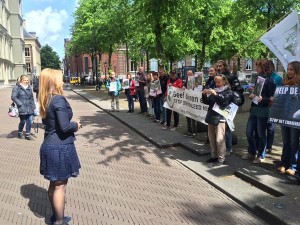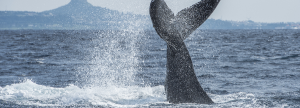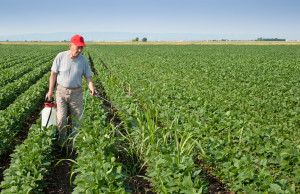Worldlog Semana 22 – 2015
Por desgracia, en Holanda se practican todavía muchos “hobbies” crueles que causan gran sufrimiento a los animales. Entre ellos se cuenta la explotación comercial de cisnes, una práctica despiadada consistente en capturar a los cisnes y mutilarles las alas para que no puedan volar. Los explotadores de cisnes ganan mucho dinero vendiendo los animales como aves decorativas. Nuestro partido clama desde hace años por la prohibición total de esta práctica. Tras la emisión de un programa de televisión en que se denunciaba la mutilación de cisnes con fines comerciales, la secretaria de Estado prometió retirar las últimas licencias. La semana pasada, un grupo de protesta acudió al parlamento en La Haya para hacer oír su voz en contra del maltrato de cisnes. El objetivo de la protesta era recordar a la secretaria de Estado la necesidad imperiosa de retirar las últimas licencias existentes para la explotación comercial de cisnes. ¡Gracias de nuevo a todos los participantes en la protesta!
Manifestantes en la plaza frente al parlamento holandés en La Haya
Desde los años 80 hay un acuerdo internacional para no cazar ballenas. Pero algunos países, como Islandia, Noruega y Japón, insisten en incumplirlo. Muchos cetáceos están amenazados de extinción y, si la cosa no cambia, acabarán desapareciendo. En estos momentos hay abiertas negociaciones entre Europa y Japón sobre un tratado comercial en el que Japón tiene mucho interés. Esta nos parece una buena ocasión para que el Parlamento Europeo ejerza presión sobre Japón a través de la política comercial. Las negociaciones deben parar hasta que Japón no renuncie a la captura ilegal de ballenas. Por suerte, nuestra petición al respecto encontró eco esta semana en algunos otros grupos del Parlamento Europeo.
Los grupos de presión de la industria química han acertado a bloquear y retrasar por todo tipo de medios las acciones de la Unión Europea contra el uso de sustancias que alteran el sistema hormonal. Eso afirma el grupo de investigación y campañas Corporate Europe Observatory (CEO).
La semana pasada salió a la luz que los grupos de presión de la industria química han sabido bloquear y retrasar las medidas de la Unión Europea manipulando, por ejemplo, las pruebas científicas. Se trata de sustancias químicas potencialmente dañinas presentes en productos como pesticidas, plásticos, cosméticos, ordenadores, alfombras y materiales de construcción. Dichas sustancias pueden alterar el sistema hormonal y son especialmente peligrosas para niños y mujeres embarazadas. Se considera que estas sustancias tienen relación con, entre otras afecciones, el cáncer, la infertilidad, la diabetes y la obesidad. Al parecer, el departamento de medioambiente de la Comisión Europea ha recibido graves zancadillas por parte de otros departamentos encargados de cuestiones comerciales y empresariales. Considero escandaloso que la legislación lleve años sufriendo retrasos a causa de ello. ¡Nuestra saludo debería tener prioridad! En el debate sobre comercio internacional he pedido atención para el excesivo poder de los grupos de presión de las multinacionales. Pulsa aquí.
Para terminar os dejo dos recomendaciones de lectura. En primer lugar este fantástico artículo sobre el valor de nuestra naturaleza. En segundo lugar me gustaría recomendaros el libro “Redefining Prosperity”. Este libro explica algo que venimos denunciando como único partido en Holanda: en un planeta con recursos limitados, el crecimiento económico no es la solución para salir de las crisis, sino el problema.
¡Que disfrutéis leyendo y hasta la semana que viene!
Saludos,
Marianne
In the Netherlands, there are unfortunately still cruel ‘hobbies’ that cause a lot of harm to animals. An example of this is swan drifting. Swan drifting is an extremely cruel procedure whereby swans are first caught in the wild, after which a part of their wings is removed, so the animals can no longer fly away. Swan drifters make a lot of money by subsequently selling the swans as ornamental birds. For many years, our party has pleaded for a total ban on swan drifting. Not until a television broadcast about this, the State Secretary recently promised to withdraw the last exemptions. A protest group came to the Lower House in The Hague last week to campaign against swan drifting. The aim of the campaign was to urge the State Secretary that it is extremely necessary to withdraw the exemptions of the swan drifters that are currently still active. For everyone who participated in this campaign: thank you again!
On Plein in front of the Lower House in The Hague
Since the 1980s already, it was internationally agreed not to hunt whales. A few countries, however, including Iceland, Norway and Japan, are not bothered about this agreement. Many whales are threatened and they will become extinct if this continues. Negotiations between Europe and Japan are currently ongoing with respect to a trade agreement that Japan wants with Europe. To our party, this seems to be a good opportunity to have the European Parliament exert pressure on Japan through commercial policy. The negotiations ought to be stopped as long as Japan does not stop illegal whaling. Our call for this was fortunately also supported by other political groups in the European Parliament this week.
Lobbyists for the chemical industry have managed to block and delay action by the European Union against the use of hormone disrupting substances in many ways. This was said by the research and campaign group Corporate Europe Observatory (CEO).
Last week, it became clear that lobbyists for the chemical industry have managed to block and delay EU measures against the use of hormone disrupting substances in many ways. They did this by, for example, manipulating scientific evidence. This involves possibly toxic chemicals in products such as pesticides, plastics, cosmetics, computers, carpets and building materials. Those substances may be hormone disruptive and are particularly dangerous to children and pregnant women. The substances have therefore been linked to, inter alia, cancer, infertility, diabetes and obesity. Allegedly, the environment department of the European Commission was seriously thwarted by colleagues of departments involved in trade and business. I find it outrageous that this has caused years of delays in legislation already. Our health should come first! In the debate about international trade, I called attention to the power of lobbyists from multinationals. Click here.
To conclude, I have two reading tips for you! Firstly, this wonderful article on the value of our nature. Secondly, I would like to recommend the book “Redefining Prosperity”. The book describes what we have been pointing out as the only party in the Netherlands: On a planet with limited resources, economic growth is no solution to the crises, but precisely the problem.
Enjoy your reads and see you next week!
Regards, Marianne


